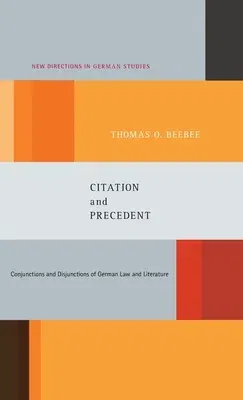Thomas Oliver Beebee
(Author)Citation and Precedent: Conjunctions and Disjunctions of German Law and LiteratureHardcover, 24 November 2011

Qty
1
Turbo
Ships in 2 - 3 days
In Stock
Free Delivery
Cash on Delivery
15 Days
Free Returns
Secure Checkout

Reading Age
Ages: 22
Grade Levels
17
Part of Series
New Directions in German Studies
Print Length
296 pages
Language
English
Publisher
Continuum
Date Published
24 Nov 2011
ISBN-10
1441117903
ISBN-13
9781441117908
Description
Product Details
Audience:
Ages: 22
Author:
Book Format:
Hardcover
Country of Origin:
US
Date Published:
24 November 2011
Dimensions:
21.59 x
14.22 x
2.79 cm
Educational Level:
Grade Levels: 17
Genre:
Law Studies
ISBN-10:
1441117903
ISBN-13:
9781441117908
Language:
English
Location:
New York
Pages:
296
Publisher:
Weight:
498.95 gm